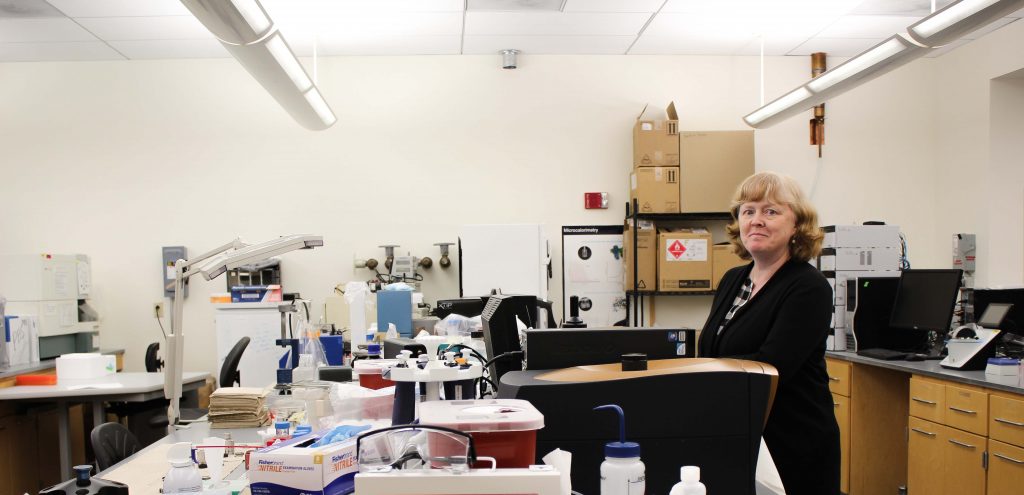Have you ever wondered how the cells in our bodies communicate with each other? Or how plant cells convert light into energy? The answers to these questions lie in the field of biophysics. The study of biophysics employs the laws and methods of physics to understand how biological systems work, which requires the collection and interpretation of large amounts of quantitative data. The University of Connecticut houses its very own Biophysics Facility, where researchers across many disciplines can utilize the advanced equipment they need to compile this critical information.
The Biophysics Facility is operated by the Center for Open Research Resources and Equipment, also known as COR²E. The facility offers specialized equipment and expert technical support through analytical ultracentrifugation, highly sensitive methods to measure heat capacities known as microcalorimetry, and protein X-ray crystallography right on the Storrs campus. The Biophysics Facility specializes in studying the characteristics of molecules and proteins, as well as the interaction between molecules, and is a crucial resource for researchers on campus.

Facility director Heidi Erlandsen, Ph.D., has a rich history of expertise in protein crystallography, having previously worked in this field at the University of Alabama, Birmingham before her arrival at UConn in 2015. According to COR²E director, Dan Schwartz, Erlandsen’s experience is extremely valuable to the facility, as she helps guide researchers on how to best utilize the equipment to ensure the best outcomes.
“The fact that large pharmaceutical companies routinely utilize her facility is a testament to the service and expertise Dr. Erlandsen provides” says Schwartz. “Her assistance on the acquisition of state of the art equipment that helps keep UConn researchers at the cutting edge is also essential.”
But you don’t have to take Schwartz’s word for it. Recent successful studies from faculty who have taken advantage of services at the Biophysics Facility are evidence of the center’s valuable contribution to UConn research.
“Just since New Year’s, there have been at least three papers published which I have been involved in, such as the external collaborations on a biochemistry study between James Cole from the Department of Molecular and Cell Biology and researchers at San Diego State University, as well as two studies from Pharmacy professor Dennis Wright’s lab involving calorimetry and protein structures. Every project I work on is different, and it is very rewarding to be able to use my skills to aid in such diverse types of research.”
In order to accommodate the many types of research that rely on its services, the Biophysics Facility offers a wide range of programs and equipment. For instance, the facility is home to three analytical ultracentrifuges with absorbance, interference, and fluorescence detector systems, including the brand new OptimaAUC instrument, which is capable of measuring AUC data for up to 20 wavelengths at the same time, in addition to a small-volume isothermal titration calorimeter, a differential scanning calorimeter, and an X-ray diffraction system.
The Biophysics Facility strives to foster a supportive and knowledgeable environment for research to thrive, and any researchers with inquiries about utilizing the facility are highly encouraged to reach out to Erlandsen by email at heidi.erlandsen@uconn.edu or by phone at 860.486.4550.
Follow UConn Research on Twitter & LinkedIn.



